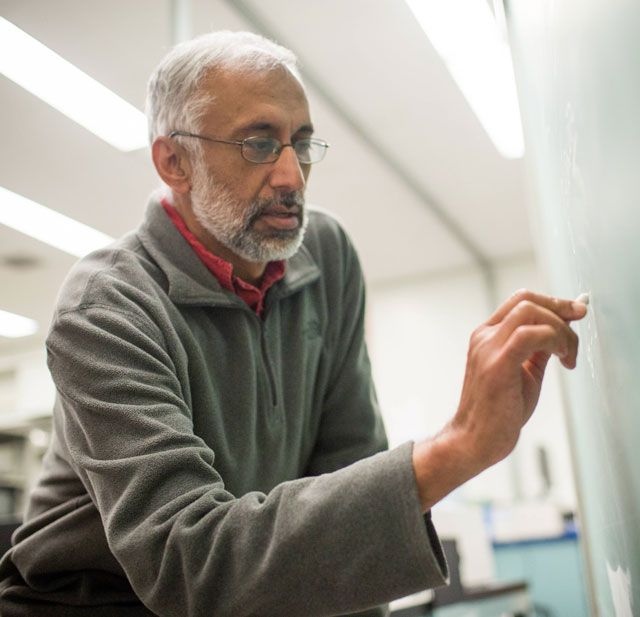Professor Anand Jagota has partnered with Cornell University and Michelin North Americato investigate surface architectures for enhancement of sliding and static friction against rough and smooth surfaces.
Their recently awarded NSF GOALI grant Collaborative Research: Designing Structures to Enhance Friction of Rubbery Materials will provide funds to fuel their research.
The target application is improving friction of tires, and the planned research requires work on design and theory, fabrication, and testing under realistic constraints and conditions. For this reason, the project is a collaboration between university labs at Cornell and Lehigh and an industrial researcher, Dr. Constantine Khriprin, with Michelin North America. The Lehigh group is responsible for fabrication and experimentation, the Cornell group for theory and modeling, and Michelin for testing under realistic conditions and constraints.
Preliminary work has shown that certain surface architectures, for an appropriately designed set of materials and geometrical parameters, exhibit significant enhancement of sliding friction and maintain static friction enhancement against rough surfaces. For example, a film-terminated ridge-valley design (an anisotropic structure with direction-dependent frictional properties) can strongly enhance sliding friction in a direction orthogonal to the ridges by complex internal deformation mechanisms that dissipate energy. For certain combinations of parameters, sliding friction along the ridges can also be enhanced. Such film-terminated fibrillar structures also results in strong enhancement of static friction that is substantially retained even against rough surfaces.
These bio-inspired surface architectures have the potential to be transformative by providing dissipation mechanisms at the micron scale that can be optimized by quantitative design of the architecture.

